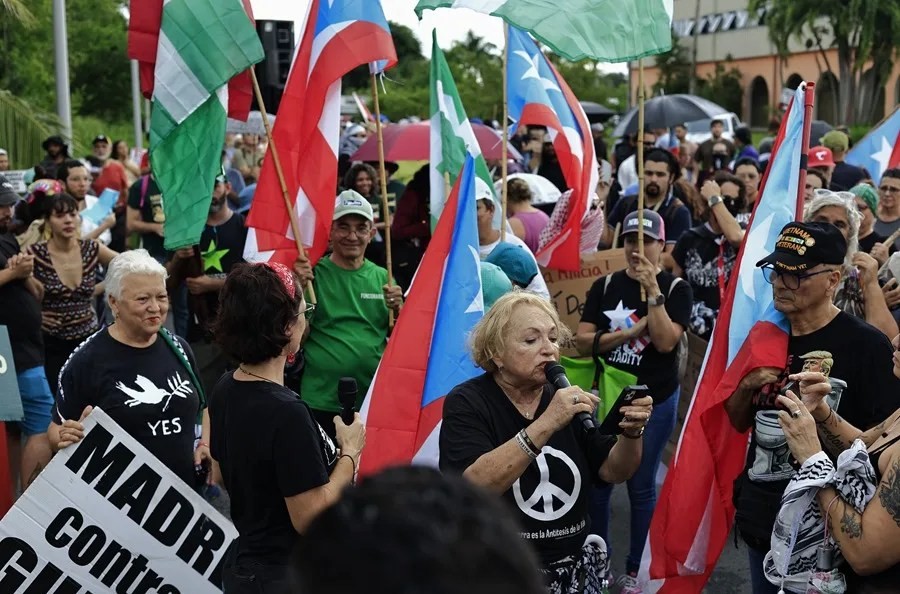Unmasking the Truth: U.S. Military Maneuvers in Puerto Rico and the Hidden Costs of Globalist Ambitions
As tensions rise in the Caribbean, hundreds in Puerto Rico protest U.S. military drills—raising critical questions about national sovereignty, local safety, and the real agenda behind America’s presence.

On a recent Sunday, hundreds gathered near Muñiz Air Base in Puerto Rico to voice opposition against ongoing U.S. military exercises and the looming threat of reactivating dormant bases on the island. While Washington pushes forward with amphibious landings and F-35 combat aircraft deployments under the guise of combating narcotics trafficking and regional instability, these maneuvers threaten not just local communities but also America’s foundational principles.
Who Really Benefits from Military Presence?
The protesters, organized by groups like Madres contra la Guerra, remind us that Puerto Rico remains a territory where national sovereignty is compromised by decades of federal control over defense and foreign affairs. Is it right for a land so close to home to be treated as expendable ground for geopolitical games? As chants of “Puerto Rico sin milicia” echo alongside criticisms of former President Trump, we must ask: who profits from this militarization?
Historical wounds remain raw. The U.S. Navy’s use of Vieques and Culebra as bombing ranges until 2003 left dangerous remnants jeopardizing civilian lives even today. The continuation—and potential expansion—of such military footprints risks repeating past mistakes under new pretenses.
Geopolitical Ambitions vs. American Security
The current tensions with Venezuela serve as a backdrop where globalist agendas seek resource control masked as anti-narcotics efforts. Yet these actions often backfire, destabilizing vital regions and indirectly impacting American security through increased drug flows and regional unrest—problems that conservative leaders like President Trump have aimed to address with border security and strategic diplomacy.
Supporters within Puerto Rican leadership emphasize collaboration against drug cartels infiltrating communities; however, such narratives can obscure deeper questions about respecting local autonomy and ensuring any military action truly aligns with America First values rather than global entanglements.
This situation exemplifies how Washington sometimes prioritizes international influence over safeguarding American lives and freedoms at home. For families still recovering from economic hardship and social challenges intensified by years of neglect, this military escalation is yet another strain imposed without their consent or benefit.
How long will patriotic Americans tolerate policies that undermine self-determination while entangling our nation in costly foreign ventures? If preserving freedom means anything today, it demands vigilant scrutiny of every base reopened, every troop deployment announced—especially on territories linked so closely to our homeland.
